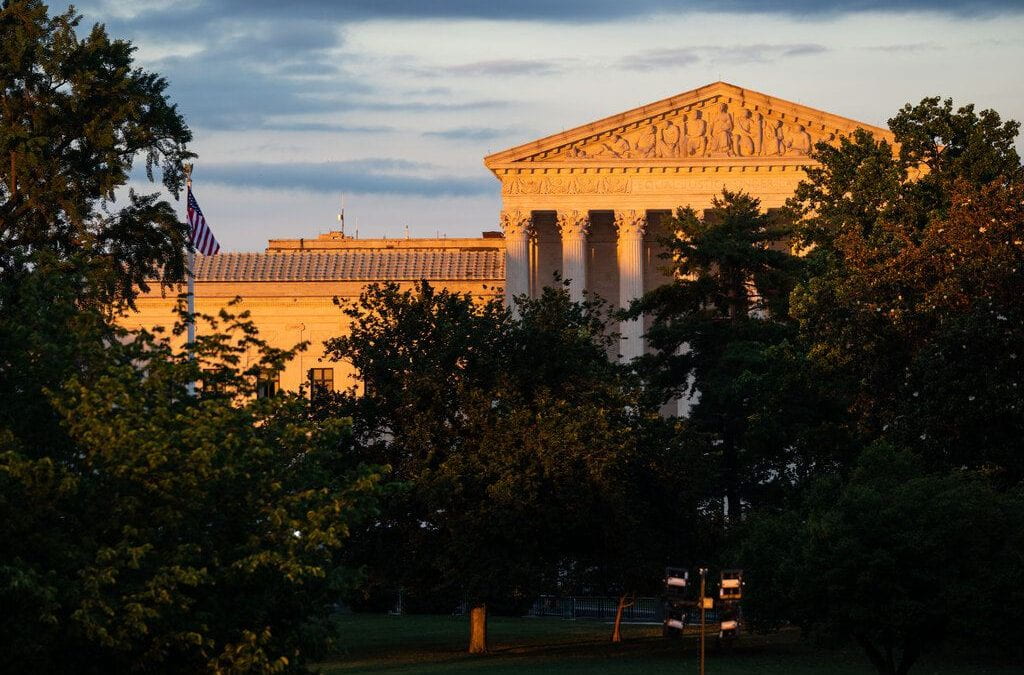On June 30th, 2022, the United States Supreme Court ruled on the case West Virginia vs. the Environmental Protection Agency. The Court concluded, with a vote of 6-3, that the Environmental Protection Agency does not have the power to implement regulations that will significantly alter the economy without the approval of Congress (Totenberg).
Read the full Supreme Court opinion here: https://www.supremecourt.gov/opinions/21pdf/20-1530_n758.pdf
The Environmental Protection Agency, also known as the EPA, is a government agency that creates and enforces regulations in regard to the environment and human health (EPA). This agency also performs environmental research, funds environmental programs, and sponsors environmental organizations. Since 1970, when the Clean Air Act was established, the EPA has held the power to regulate carbon emissions (West Virginia v. EPA 1). The EPA determines the carbon emission limits that it sets by evaluating the best system of emission reduction or BSER (West Virginia v. EPA 1).
Significant political controversy arose around the EPA in 2015 when it produced the Clean Power Plan rule, which set explicit limits on carbon from both coal and gas power plants. The EPA created this plan in order to encourage a national shift from coal and natural gas toward renewable energy. The EPA hoped to hold coal power plants accountable to provide 11% less of the nation’s energy by 2030 (West Virginia v. EPA 2). The EPA stated this reduction as one of its BSER. The EPA’s goal was to make the reduction substantial enough that plants would be forced to consolidate, encouraging the shift to renewable energy plants. However, this consolidation had countless economic implications, including job loss and increased cost of electricity. It is for this reason that in 2016, the Court prevented the Clean Power Plan rule from taking effect. In 2019, the EPA replaced the Clean Power Plan rule with the Affordable Clean Energy rule. Numerous states and private parties challenged this rule and the court once again prevented it from taking effect (West Virginia v. EPA 3).
The previously mentioned case, West Virginia vs. the Environmental Protection Agency, centered on the question of whether the Clean Air Act gives the EPA the power to regulate carbon emissions to the extent that it planned to in the Clean Power Plan rule and the Affordable Clean Energy rule. Congress is responsible for determining the powers of the EPA and other government agencies. The Supreme Court believes that the EPA was overstepping the powers it had been granted by Congress in the Clean Power Plan and Affordable Clean Energy rule.
Coal-fired power plants are one of the greatest sources of carbon emissions in the United States (Totenberg). By restricting the EPA’s capacity to regulate these plants, the EPA has become severely limited in what it can do to improve the current trajectory of climate change. Experts believe that it will be extremely difficult to make systemic changes to carbon emissions if the EPA is not permitted to strongly regulate them.
This decision by the Supreme Court is also believed to restrict other governmental agencies from making climate reform, which may include the Federal Energy Regulatory Commission and an interim rule that it is planning to implement that will reduce greenhouse gas emissions (Totenberg).
The Environmental Protection Agency has stated that it is actively analyzing the ruling of the Supreme Court and drafting a plan of various approaches for passing regulations to cut carbon emissions from power plants (Friedman).
Sources used:
Friedman, Lisa. “E.P.A. Describes How It Will Regulate Power Plants after Supreme Court Setback.” The New York Times, The New York Times, 7 July 2022, https://www.nytimes.com/2022/07/07/climate/epa-greenhouse-gas-power-plant-regulations.html?smid=url-share. 9 July 2022.
“Our Mission and What We Do.” EPA, Environmental Protection Agency, https://www.epa.gov/aboutepa/our-mission-and-what-we-do. 9 July 2022.
Supreme Court of the United States. https://www.supremecourt.gov/opinions/21pdf/20-1530_n758.pdf. 9 July 2022.
Totenberg, Nina. “Supreme Court Restricts the EPA’s Authority to Mandate Carbon Emissions Reductions.” NPR, NPR, 30 June 2022, https://www.npr.org/2022/06/30/1103595898/supreme-court-epa-climate-change. 9 July 2022.


